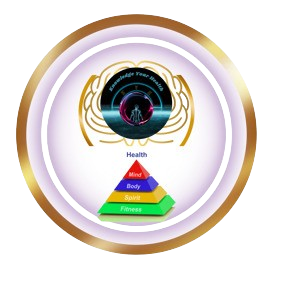Iodine: The Thyroid’s Best Friend for Metabolism and Growth
Iodine might not be the first mineral that comes to mind when thinking about essential nutrients, but it plays a crucial role in supporting our thyroid gland, metabolism, and overall growth and development. Often associated with table salt, iodine is essential for maintaining optimal health and well-being. Let’s explore why iodine is important, how much we need, and where to find it in our food.
Why is Iodine Important?
Iodine is like the behind-the-scenes director, quietly orchestrating several vital functions in our body:
1. Thyroid Function: Iodine is a key component of thyroid hormones, which regulate metabolism, growth, and development, ensuring our body functions efficiently.
2. Metabolism: Thyroid hormones produced with the help of iodine play a crucial role in metabolic processes, helping us convert food into energy and maintain a healthy weight.
3. Brain Development: Adequate iodine levels are essential for proper brain development during pregnancy and early childhood, supporting cognitive function and overall brain health.
4. Energy Production: Iodine supports energy production at the cellular level, helping us stay energised and active throughout the day.
Healing Dosages of Iodine
The recommended daily intake of iodine varies depending on age, gender, life stage, and individual health status. Here’s a general guideline:
- Infants (0-6 months): 110 mcg (micrograms)
- Infants (7-12 months): 130 mcg
- Children (1-8 years): 90 mcg
- Children (9-13 years): 120 mcg
- Teens (14-18 years): 150 mcg for males, 150 mcg for females
- Adults (19 years and older): 150 mcg
- Pregnant Women: 220 mcg
- Breastfeeding Women: 290 mcg
It’s important to note that excessive iodine intake can lead to thyroid dysfunction and potential adverse effects. Therefore, it’s crucial to stay within the recommended daily limits unless advised otherwise by a healthcare professional.
Food Sources of Iodine
Iodine is naturally found in various foods and can also be found in iodised salt. Here are some iodine-rich foods to include in your diet:
Seafood: Seaweed (kelp), fish (cod, tuna, shrimp), and shellfish (lobster, oysters)
Dairy Products: Milk, cheese, and yogurt (the iodine content varies depending on the iodine content of the cow’s diet and iodine used in processing)
Eggs: Especially the yolk
Iodised Salt: Table salt fortified with iodine
Grains: Some grains and cereals fortified with iodine
Conclusion
Iodine is an essential mineral that plays a crucial role in thyroid function, metabolism, brain development, and energy production. By incorporating iodine-rich foods into your diet, following the recommended daily intake guidelines, and maintaining a balanced diet and lifestyle, you can ensure adequate iodine intake and support overall health and well-being. However, if you suspect you have an iodine deficiency or are considering iodine supplements, it’s essential to consult with a healthcare professional or registered dietitian to determine the appropriate iodine intake tailored to your individual needs and preferences.
